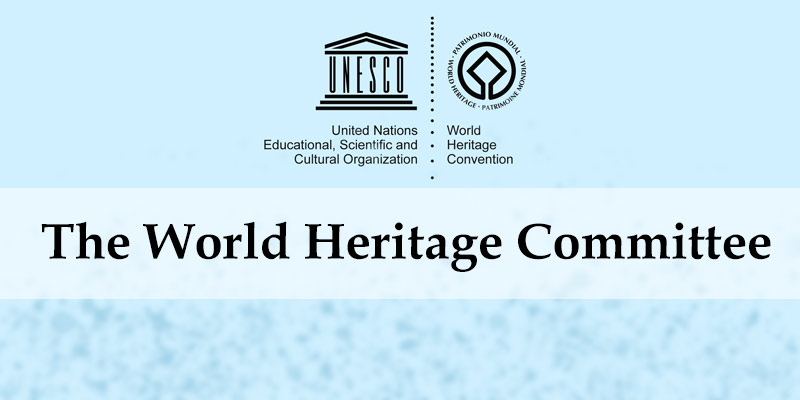- India
- Jan 09
India to chair UNESCO’s World Heritage Committee session in July
India is set to chair and host UNESCO’s World Heritage Committee session in New Delhi this year for the first time.
Following a proposal by the authorities of India, and in consultation with the UNESCO Director-General, the 46th session of the World Heritage Committee will take place from July 21 to 31, 2024 in New Delhi, an official statement by the UNESCO said.
World Heritage Committee
• The World Heritage Committee meets once a year, and consists of representatives from 21 of the States Parties to the Convention elected by their General Assembly.
• The Committee is responsible for the implementation of the World Heritage Convention, defines the use of the World Heritage Fund and allocates financial assistance upon requests from States parties.
• It has the final say on whether a property is inscribed on the World Heritage List.
• It examines reports on the state of conservation of inscribed properties and asks States Parties to take action when properties are not being properly managed.
• It also decides on the inscription or deletion of properties on the List of World Heritage in Danger.
What is a World Heritage Site?
• The United Nations Educational, Scientific and Cultural Organisation (UNESCO) seeks to encourage the identification, protection and preservation of cultural and natural heritage around the world considered to be of outstanding value to humanity.
• This is embodied in an international treaty called the ‘Convention Concerning the Protection of the World Cultural and Natural Heritage’, adopted by UNESCO in 1972.
• A World Heritage Site is a place having a special cultural or physical significance and outstanding universal value to humanity. It may be a building, a city, a complex, a desert, a forest, an island, a lake, a monument or a mountain.
• Sites recognised as being of Outstanding Universal Value are inscribed each year on the World Heritage List.
What is UNESCO?
• The United Nations Educational, Scientific and Cultural Organisation (UNESCO) was established on November 16, 1945.
• UNESCO has 194 Members and 12 Associate Members.
• It is governed by the General Conference and the Executive Board.
• The Secretariat, headed by the Director-General, implements the decisions of these two bodies.
• It has more than 50 field offices around the world and its headquarters is located in Paris.
• UNESCO’s mission is to contribute to the building of a culture of peace, the eradication of poverty, sustainable development and intercultural dialogue through education, the sciences, culture, communication and information.
• It contributes to peace and security by promoting international cooperation in education, sciences, culture, communication and information.
• UNESCO promotes knowledge sharing and the free flow of ideas to accelerate mutual understanding and a more perfect knowledge of each other's lives.
• UNESCO’s programmes contribute to the achievement of the Sustainable Development Goals defined in the 2030 Agenda, adopted by the UN General Assembly in 2015.
Manorama Yearbook app is now available on Google Play Store and iOS App Store


